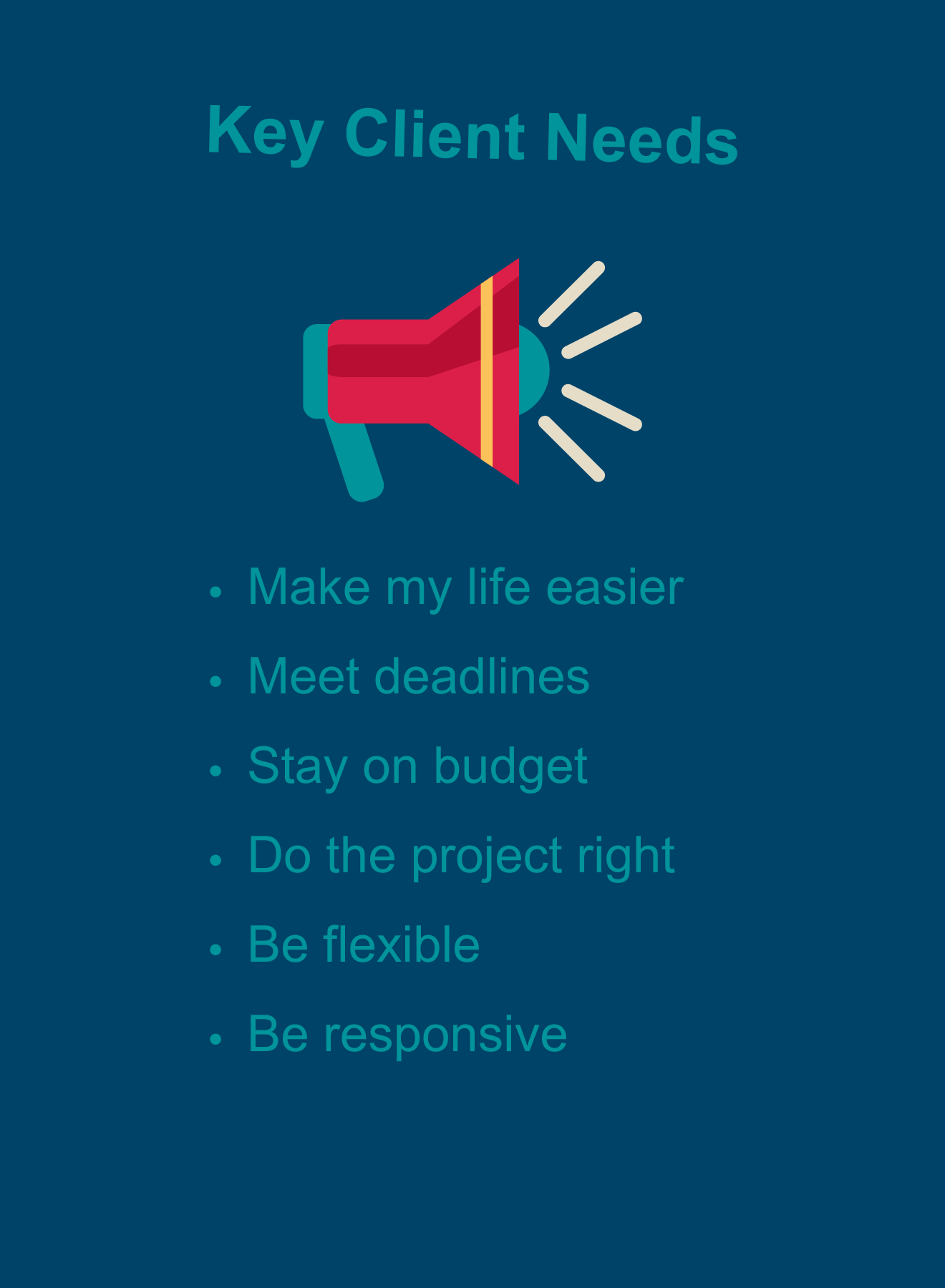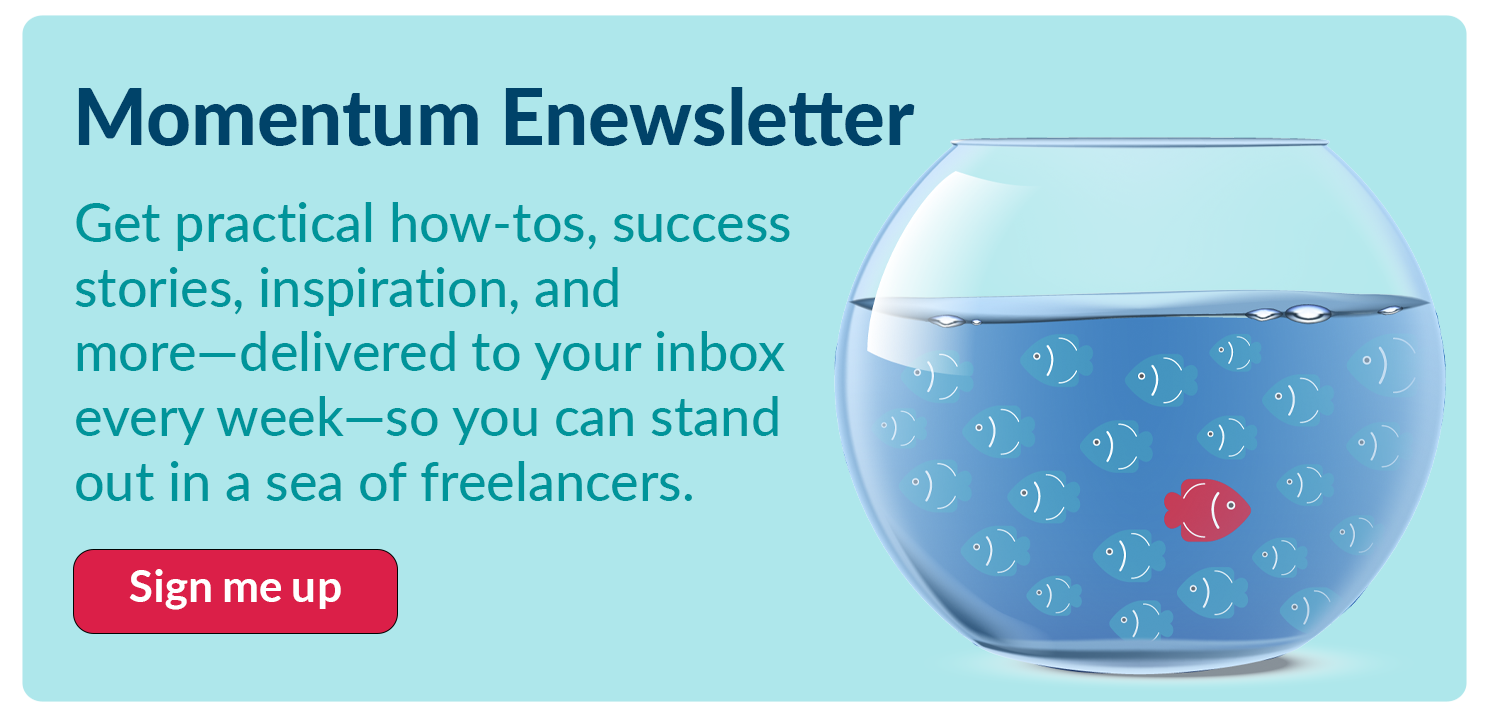Attract Your Ideal Clients with a Clear Specialty

If you have a clear specialty, marketing will be much easier because you’ll be able to speak directly to the clients you work with or want to work with. And your ideal clients will be more likely to find you, trust you, and hire you.
Your freelance specialty is like your personal lighthouse, guiding the right clients straight to you. It’s not just about what you do but who you do it for—and how you help your clients meet their needs.
If you have a clear specialty, then you’ll stand out in a sea of freelancers. So clients who pay you well, give you steady work you enjoy, and treat you with respect—your ideal clients—will be more likely to find you, trust you, and hire you.
Become the Expert Clients Need
Imagine that you have a bad leak and water is pouring onto your floor. You’re going to call a plumber, not a handyman—because the plumber is an expert in solving your problem. The handyman isn’t.
Clients want to work with experts who understand and meet their specific needs. Having a clear specialty lets you position yourself as that expert and build trust.
Stand Out as “the” Freelancer, Not Just “Another Freelancer”
When you have a clear specialty, instead of just being “another freelancer,” you can become the freelancer for a specific type of work or project. This makes it easy for clients to remember you when they need freelance help.
Colleagues will think of you first when they hear about freelance work that’s right for you. For example, I know one freelance medical writer who only writes about ophthalmology and another who focuses on devices. So when I hear about opportunities in either of these areas, it’s easy for me to send the work their way.
Make Marketing Easier with a Clear Specialty
Once you have a clear specialty, marketing becomes so much easier. Instead of trying to work for many types of clients (target markets) in many industries, you hone in on the clients who are most likely to hire you based on your skills and experience and the work you like best.
Then you speak directly to the clients you work with or want to work with—using client-focused marketing. This is a fancy way of saying marketing that focuses on what your clients need and how you help them meet their needs. That’s really important because clients only care about what we can do for them.
Client-focused marketing helps clients feel confident about your ability to deliver. It shows that you know your key target markets and lets you speak directly to their needs.
And client-focused marketing helps you attract your ideal clients with less work and in less time. Because when clients see your marketing, they’ll think, “This is the freelancer for me. They understand what I need and have the expertise and experience to help me.”
But you need a clear specialty to develop your client-focused marketing.
Choose a Specialty to Attract Ideal Clients
Most freelancers specialize by industry, like health care and medical, or technology, or financial services. Industry specialization lets you choose industries with lots of opportunities and high-paying clients.
You could focus on an industry, part of an industry, and/or target markets within an industry. Medical communications, for example, is part of health care and medical. I specialize in medical communications, which offers lots of opportunities for freelance medical writers and editors and pays well. But medical communications is a broad specialty, with five major types of work:
- Medical and scientific
- Continuing medical education
- Regulatory
- Consumer health and patient education
- Marketing and public relations.
When choosing your specialty, assess market demand so that you choose growing industries and target markets (groups of similar clients) that offer high pay and lots of opportunities.
Learn more about how to choose your specialty
Choosing the Right Freelance Specialty: What You Need to Know
Impress Clients with Marketing Focused on Them, Not You
Client-focused marketing starts by learning about what your clients need. Figuring this out isn’t as hard as you probably think it is. And understanding client needs helps make you the expert clients want.

General client needs
Common general, or big picture, needs of clients include:
- Get more business (usually by selling more products or services)
- Make more money (also by selling more products or services but the language you’ll use to attract these clients may be somewhat different)
- Help their clients build their businesses
- Be seen as a thought leader
- Educate and inform people
- Stay on budget and on deadline.
If you focus on getting more business or making more money, break this down into the way the target market does this. Here are some examples of general needs for different target markets.
Hospitals need to get more patients in a competitive marketplace (get more business).
Communications agencies need to help their clients get more business, make more money, and stay on budget and on deadline.
Non-profit organizations need to educate and inform people, get more funding (this is the non-profit version of making more money), and stay on budget.
Freelancer-specific needs
Freelancer-specific needs start with working with freelancers who are excellent at what they do (writing, editing, etc.). You don’t always need experience in the type of work the client is looking for help with, but you do need to have experience that’s relevant to the type of work or the client’s industry.
Making the client’s life easier is the key overall need of all clients. Here are other things that clients need from freelancers.

Target market needs
A target market is a group of similar clients. In medical communications, for example, target markets include hospitals/health systems, medical communication agencies, and medical education agencies. Tech target markets include artificial intelligence, software, hardware, and e-commerce. In financial services, banks, investment banks, investment companies, and personal finance are some of the target markets.
It takes more time to learn about target market needs than it does to learn about general or freelancer-specific needs. But there are some easy ways to do this, especially through professional associations. You’ll get access to great resources through professional associations and will be able to meet people working in your target markets.
Also, follow industry news. There’s lots of great free information on the web. Easy ways to learn and stay updated include Google alerts, email newsletters like Smart Briefs, and online publications and websites in your industries and target markets.
Client-specific needs
Learning about the needs of your ideal clients will help you develop client-focused marketing. This is easy to do through some simple web research.
Search for leading company lists in each of your key target markets (e.g., best medical communication agencies, best banks, or best artificial intelligence companies). Then visit the websites of about 10 potential clients.
Spend a few minutes on the “Home” and “About” pages, and any pages related to the work you could do for them. Take some notes about each client’s mission/vision/values and needs, and the key language they use.
When you look at this for about 10 clients in a specific target market, you should see some themes and language (words or phrases) that you can use in your marketing to attract your ideal clients.
How Client-Focused Marketing Works
Once you have your clear specialty and your key target markets, and you’ve identified the needs of your ideal clients, you’re ready to start developing your client-focused marketing. Let me show you how this works with some examples.
My freelance business
I’m a freelance medical writer who specializes in 2 types of medical communications:
- Consumer health and patient education
- Marketing and public relations.
My key target markets are:
- Hospitals/health systems
- Large medical practices
- Disease-focused health organizations
- Healthcare communications agencies.
I work with other types of clients too, but my marketing focuses on these target markets.
The key client needs I use in my marketing are:
- General need: Stay on deadline
- Freelancer-specific need: Meet deadlines
- Industry-specific needs: Get more business
- Target market needs:
- Hospitals/health systems and large medical practices: Get more business by getting more patients
- Health care marketing agencies: Get more business by helping their clients build their businesses
- Disease-focused associations: Get more business by educating and informing more people.
Here’s some of my client-focused marketing:
Tagline: Targeted Medical Content. On time. Every time.
You can see my tagline in my full logo.

Website headline:
Targeted Medical Content that Attracts, Engages, and Motivates Your Audiences
My tagline and my website headline help me attract my ideal clients by quickly and clearly showing them that I understand their needs and can help them meet those needs. Here’s how I’ve used client needs to focus my marketing:
Benefits clients get when they work with me:
“Targeted Medical Content that Attracts, Engages, and Motivates Your Audiences” shows I can help clients get more business.
“On time. Every time.” shows I help clients meet their deadlines.
Here’s what the top of my home page with my logo and headline looks like.

Note that I use a different version of my logo here. Since there’s not as much space in the upper left-hand corner of a webpage as there is an email signature or business card, I’ve cut “On time. Every time” from this version of my logo. I do use that marketing message elsewhere on my home page.

Learn More About Developing a Clear Specialty
Choosing the Right Freelance Specialty: What You Need to Know
4 Freelancers Share How They Make More Money as Specialists
How to Get Your Ideal Freelance Clients